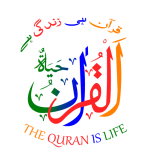The main division of the Qur’an is into chapter (surah) and verse (ayat). The Quran is additionally divided into 30 equal sections, called juz’ (plural: ajiza). The divisions of juz’ do not fall evenly along chapter lines. These divisions make it easier to pace the reading over a month’s period, reading a fairly equal amount each day. This is particularly important during the month of Ramadan, when it is recommended to complete at least one full reading of the Qur’an from cover to cover.
The 30th juz’ of the Quran includes the last 36 surahs (chapters) of the holy book, from the first verse of the 78th chapter (An-Nabaa 78:1) and continuing to the end of the Quran, or verse 6 of the 114th chapter (An-Nas 114:1). While this juz’ contains a large number of complete chapters, the chapters themselves are quite short, ranging in length from 3-46 verses each. Most of the chapters in this juz’ consist of fewer than 25 verses.
Most of these short surahs were revealed at the beginning of the Makkan period, when the Muslim community was timid and small in number. Over time, they faced rejection and intimidation from the pagan population and leadership of Makkah.
These early Makkan surahs were revealed at a time when Muslims were small in number, and in need of confirmation and support. The passages remind the believers of Allah’s mercy and the promise that in the end, good will prevail over evil. They describe the power of Allah to create the universe and everything in it. The Quran is described as a revelation of spiritual guidance, and the coming Judgment Day as a time when believers will be rewarded. Believers are advised to be patiently perseverant, remaining strong in what they believe.
These chapters also contain plenty of firm reminders of Allah’s wrath upon those who reject faith. For example, in Surah Al-Mursalat (77th chapter) there is a verse which is repeated ten times: “Oh, woe to the rejectors of Truth!” Hell is often described as a place of suffering for those who deny the existence of God and those who demand to see “proof.” This entire juz’ has a special name and a special place in Islamic practice. This juz’ is often called juz’ amma, a name which reflects the first word of the first verse of this section (78:1). It is usually the first part of the Quran that children and new Muslims learn to read, although it comes at the end of the Quran. This is because the chapters are shorter and easier to read/grasp, and the messages revealed in this section are most fundamental to a Muslim’s faith.
Table of Contents
Surah An-Naba





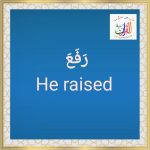



Surah An-Naziat
videos coming soon, link found on You Tube
Surah Abasa


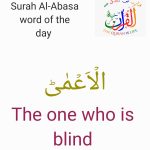



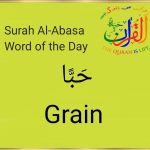
















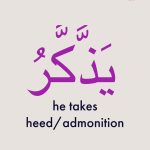






Surah Takwir- Urdu
Surah Al-Infitar
The 30th juz’ of the Quran includes the last 36 surahs (chapters) of the holy book, from the first verse of the 78th chapter (An-Nabaa 78:1) and continuing to the end of the Quran, or verse 6 of the 114th chapter (An-Nas 114:1). While this juz’ contains a large number of complete chapters, the chapters themselves are quite short, ranging in length from 3-46 verses each. Most of the chapters in this juz’ consist of fewer than 25 verses.
Most of these short surahs were revealed at the beginning of the Makkan period, when the Muslim community was timid and small in number. Over time, they faced rejection and intimidation from the pagan population and leadership of Makkah.
- For those who believe and do righteous deeds, will be gardens beneath which rivers flow; that is the great triumph. Truly strong is the grip of thy Lord. It is He who creates from the very beginning, and He can restore life. And He is the Oft-Forgiving, full of loving kindness. Lord of the Throne, full of all glory, doer of what He intends.” (85:11-16)
- “By degrees, We shall teach you the message, so you shall not be forgetful, except as Allah wills. For He knows what is manifest and what is hidden. And We will make it easy for you to follow the Simple Path.” (87:6-8)
- “But he has not made haste on the path that is steep. And what will explain the path that is steep? It is: freeing the slave, or the giving of food in a time of difficulty, to the orphan with claims of relationship, or to the indigent down in the dust. Then will he be of those who believe. And enjoin patience, constancy and self-restraint, and enjoin deeds of kindness and compassion. Such are the Companions of the Right Hand.” (90:11-18)
- Did He not find you an orphan and gave you shelter and care? And He found you wandering, and gave you guidance? And He found you in need, and made you independent? Therefore, treat not the orphan with harshness, nor turn away those who ask, but the Bounty of thy Lord — rehearse and proclaim!”
- So verily, with every difficulty there is relief. Verily, with every difficulty there is relief. Therefore, when you are free from your immediate tasks, still work hard, and to thy Lord turn all your attention.
These early Makkan surahs were revealed at a time when Muslims were small in number, and in need of confirmation and support. The passages remind the believers of Allah’s mercy and the promise that in the end, good will prevail over evil. They describe the power of Allah to create the universe and everything in it. The Quran is described as a revelation of spiritual guidance, and the coming Judgment Day as a time when believers will be rewarded. Believers are advised to be patiently perseverant, remaining strong in what they believe.
These chapters also contain plenty of firm reminders of Allah’s wrath upon those who reject faith. For example, in Surah Al-Mursalat (77th chapter) there is a verse which is repeated ten times: “Oh, woe to the rejectors of Truth!” Hell is often described as a place of suffering for those who deny the existence of God and those who demand to see “proof.”
This entire juz’ has a special name and a special place in Islamic practice. This juz’ is often called juz’ amma, a name which reflects the first word of the first verse of this section (78:1). It is usually the first part of the Quran that children and new Muslims learn to read, although it comes at the end of the Quran. This is because the chapters are shorter and easier to read/grasp, and the messages revealed in this section are most fundamental to a Muslim’s faith.
